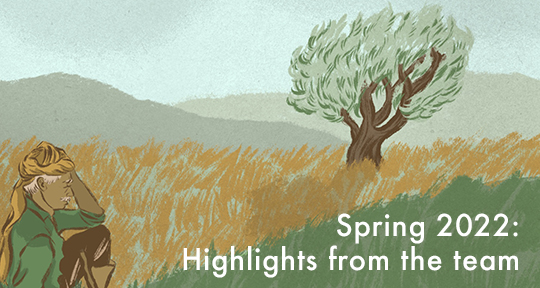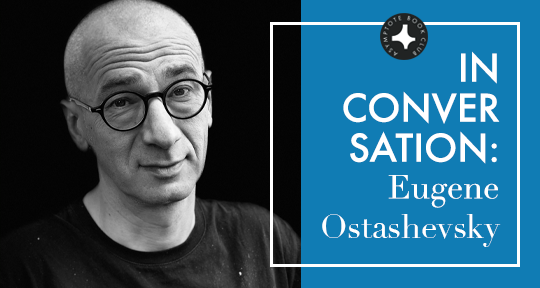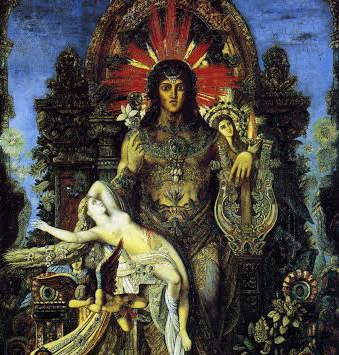Euripides’ Alkestis, written in the fifth century BCE, tells the story of a queen who volunteers to die instead of her king and husband. Our Spring 2022 issue features an excerpt from the play in Rebekah Curry’s new translation—a delightfully contemporary rendition of this Ancient Greek work based on a collaboration between Curry and classics scholar Stanley Lombardo. In our conversation, Curry—an award-winning translator of old and current languages—reflects on humor in Euripides’ disturbing play, the appeal of ancient stories, and the different shapes collaborative translation can take.
Michal Zechariah (MZ): A new translation of an ancient text is always an exciting event—it seems to go beyond the text at hand and suggest a new relationship with the past, as in Emily Wilson’s recent translation of Homer’s Odyssey. How did you first encounter Alkestis, and what drew you to translate it?
Rebekah Curry (RC): If memory serves, I first read Alkestis (in translation) as a sophomore classics major at the University of Kansas, while taking a “Greek Lit and Civ” class. Admittedly, I don’t believe I gave any more thought to it at that time than I did to the other texts I read for the class. Then, a few years ago, I was in a conversation with Stanley Lombardo, whose student I’d been at KU, and he proposed a collaboration. He’d spent some time on a translation of Alkestis that he wanted to take in a different direction, and his idea was for us to work on (and, we hoped, publish) it together.
MZ: I noticed you chose to title your translation Alkestis rather than the better-known anglicized Alcestis, a choice that reminds me of Willis Barnstone’s return to original name forms in his Restored New Testament. What made you choose to use the Greek forms of Alkestis’ and other characters’ names? Is this choice part of a wider approach you took to your translation?
RC: My idea in using Greek forms of the names rather than the Latinized/anglicized forms (“Apollon” rather than “Apollo,” “Herakles” rather than “Hercules”) was to create a sort of productive estrangement. The Greek names defamiliarize the story somewhat, distancing it from the accumulated versions and adaptations of classical mythology in English. At the same time as the translation aims at bringing Alkestis into the twenty-first century, the names are a reminder that this narrative is happening in a remote time and place. I should say, however, that this isn’t an approach that I would push everyone translating from Ancient Greek to take—it just depends on what kind of effect you’re trying to create.





